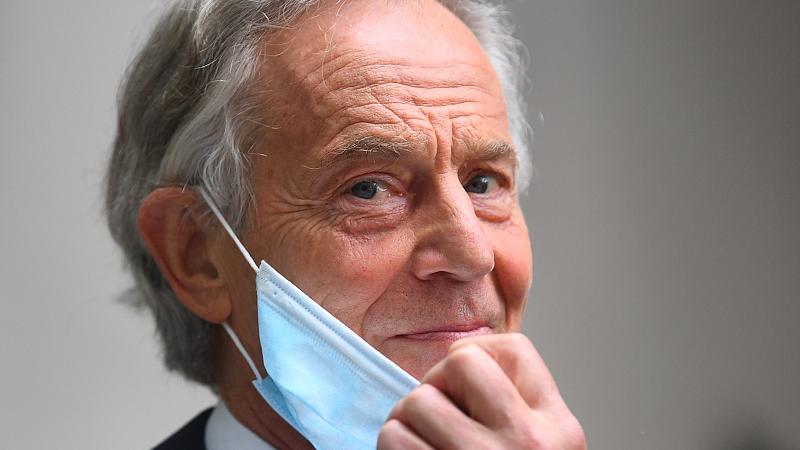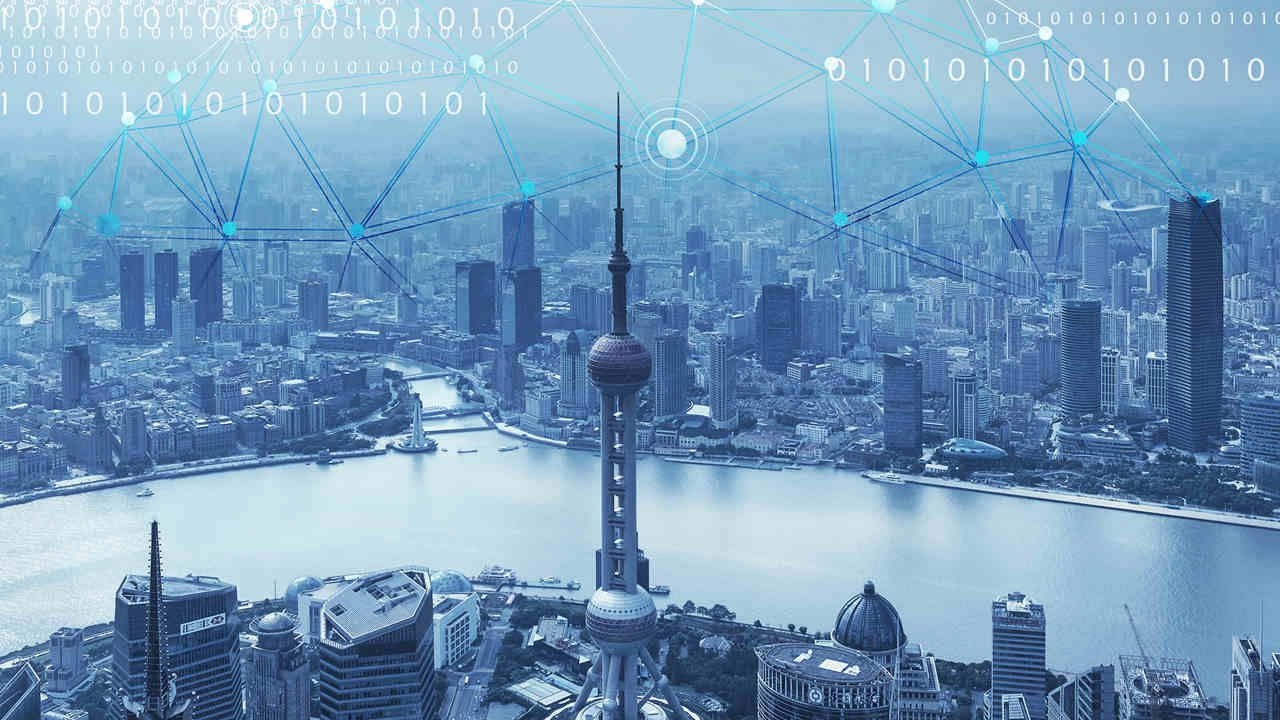
Former UK prime minister Tony Blair arrives at BBC Broadcasting House in central London, June 6, 2021. /CFP
Former UK prime minister Tony Blair arrives at BBC Broadcasting House in central London, June 6, 2021. /CFP
Editor's note: John Wight is a writer and political commentator. He is the author of Edinburgh Trilogy. He has also written a memoir Dreams That Die, telling his experience of Hollywood and participation in the U.S. antiwar movement in the run-up to the war in Iraq. The article reflects the author's opinions and not necessarily the views of CGTN.
Former UK Prime Minister Tony Blair has used the platform afforded him by the Ditchley Annual Lecture in London to deliver a "warning" about China's growing influence in the world.
In a wide-ranging address – a tour d'horizon of Western decline at home and abroad – Blair cautioned that "the biggest geopolitical change of this century will come from China not Russia" and that "We [the West] are coming to the end of Western political and economic dominance."
On a certain level it could be said that the aforementioned statements fall into the category of "stating the bleeding obvious," but for ideologues such as Blair, China's ascendancy is less a phenomenon to be welcomed as a source of increased global stability, investment and opportunity, and more one to be feared under the rubric of a clash of civilizations.
The depiction of the Communist Party of China as a bogeyman – hypothetical monster to instill fear among children – in Western circles conveniently distracts from the conversation the real bogeyman that is Western foreign policy, which is responsible for more carnage and chaos in just the last four decades than every natural disaster there has ever been combined. But in fact, China over the same period was getting on with the business of lifting millions of out of poverty.
In this regard, a World Bank report earlier this year confirmed that China had succeeded in lifting an astonishing 800 million people out of poverty since 1978, accompanied by "significant improvements in access to health, education, and other services over the same period." The report also relates how "China is a growing influence on other developing economies through trade, investment, and ideas."
Returning to Blair's speech: "We need to be open to the possibility that China changes. But strong enough to withstand it if it doesn't."
Why does Blair believe that China has to change? Was it China that invaded Iraq in 2003, resulting in up to one million dead, millions more displaced, the collapse of Iraq's state institutions, the destabilization of the Middle East and the rise of various terrorist organizations? Was China party to the destruction of Libya in 2011, leading not to freedom for the Libyan people but civil war, slave markets and a refugee crisis of biblical dimensions? Has China brought the developing world sanctions and bombs, or has it brought it investment and trade?
To merely ask these questions is to answer them.

The city view of Shanghai in China. /VCG
The city view of Shanghai in China. /VCG
Blair is correct in describing the current period as an "inflection point" in human affairs, what with the tectonic plates of geopolitics shifting and realigning in adaptation to China, India, Russia and Iran's growing footprints globally and regionally. And though while for ideologues in the West this may be something to fear, for a global south asphyxiated under the iron heel of Western hegemony for far too long, fear gives way to hope.
Blair is the archetypal poster-boy for Western exceptionalism and its conceits. For people like him, strength confers more rights than it does obligations in a dynamic that throughout history has given rise to empires that rule by the sword rather than civilizations underpinned by ideas. The Western idea of spreading influence at the end of bayonets is a failed idea.
"In the end the human spirit wants to be free," Britain's former prime minister boldly states, which given his own record and legacy of spreading death and destruction is the very definition of irony.
The rhetoric of freedom is incompatible with deeds of death, and sooner or later words and deeds must align if sanity is to prevail.
In the last analysis, Blair has not faced one second of justice for his role in the disaster that was visited on the people of Iraq in 2003. He has not apologized for that role, and indeed continues to defend the decision he took to join hands with George W. Bush and march on over that particular cliff. Now, just like one of those Japanese soldiers emerging from the jungle decades after the war is over, here he is emerging from the jungle of his own hubris to sound a warning over China's rise and growing influence.
One struggles to conjure a more profound or pristinely perverse scenario.
History works in mysterious ways, of this there is no doubt, but it neither forgives nor forgets those who seek to make it in the name of hubris instead of learn from it in the name of humility. Tony Blair and other Western ideologues belong in the former category and history's condemnation awaits.
(If you want to contribute and have specific expertise, please contact us at opinions@cgtn.com. Follow @thouse_opinions on Twitter to discover the latest commentaries in the CGTN Opinion Section.)

